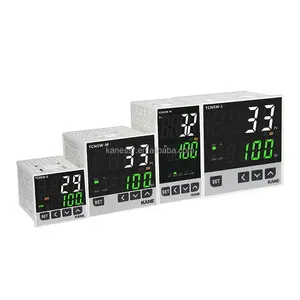Introduction to Process Controllers
A process controller is an essential component in various industrial operations, designed to monitor and control processes to ensure optimal performance and efficiency. These devices are pivotal in automated systems, helping industries manage complex processes like temperature, pressure, flow, and level control. With advancements in technology, modern process controllers offer enhancements in reliability, accuracy, and ease of use, making them integral to sectors such as manufacturing, chemical processing, and food production.
Types of Process Controllers
Understanding the different types of process controllers is crucial for selecting the right one for specific applications. Here are the primary types:
- PID Controllers: These controllers utilize a proportional-integral-derivative algorithm to provide precise control for dynamic systems.
- On/Off Controllers: A basic type that switches between two states; ideal for systems requiring simple control.
- Fuzzy Logic Controllers: Employ imprecise values and rules to handle complex processes where traditional techniques fall short.
- PLC-based Controllers: Programmable Logic Controllers are used for more complex applications requiring varied logic and functional ability.
Applications of Process Controllers
Process controllers are utilized across diverse industries due to their versatility and efficiency. Notable applications include:
- Manufacturing: Enhancing product quality by maintaining uniformity in process variables like temperature and humidity.
- Chemical Processing: Controlling reactions in chemical plants to optimize yield and maintain safety standards.
- Food and Beverage: Ensuring consistency in processes like pasteurization, fermentation, and packaging.
- Water Treatment: Monitoring and managing purification processes to comply with environmental regulations.
Features and Advantages of Process Controllers
Process controllers come equipped with advanced features that provide numerous advantages for users. Here are some key aspects to consider:
- User-friendly Interfaces: Many models offer intuitive touchscreens and graphical displays for easy operation and real-time monitoring.
- Data Logging: Process controllers can record data for analysis, enabling improved decision-making and process optimization.
- Remote Access: Many modern controllers support network connectivity for remote monitoring and control, enhancing flexibility.
- Robust Construction: With materials designed to withstand harsh industrial environments, these devices maintain reliability and longevity.
- Cost Efficiency: By reducing manual intervention and optimizing processes, companies can achieve significant cost savings.










































